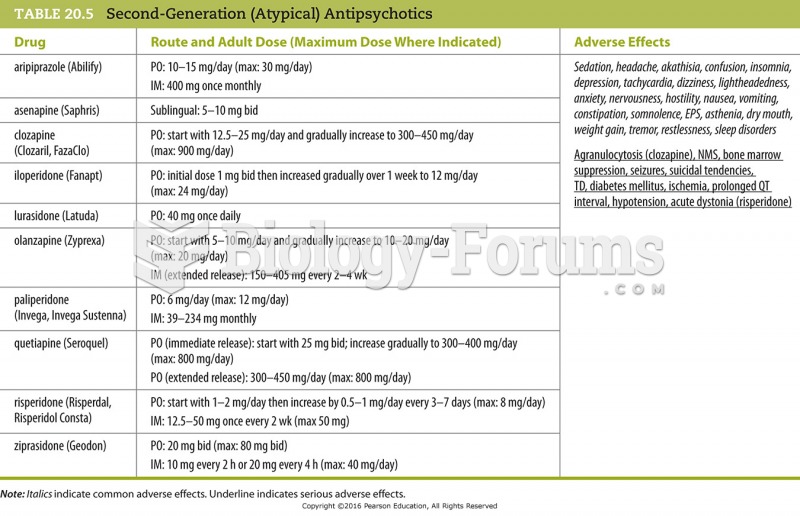|
|
|
People often find it difficult to accept the idea that bacteria can be beneficial and improve health. Lactic acid bacteria are good, and when eaten, these bacteria improve health and increase longevity. These bacteria included in foods such as yogurt.
More than nineteen million Americans carry the factor V gene that causes blood clots, pulmonary embolism, and heart disease.
The first documented use of surgical anesthesia in the United States was in Connecticut in 1844.
There are immediate benefits of chiropractic adjustments that are visible via magnetic resonance imaging (MRI). It shows that spinal manipulation therapy is effective in decreasing pain and increasing the gaps between the vertebrae, reducing pressure that leads to pain.
GI conditions that will keep you out of the U.S. armed services include ulcers, varices, fistulas, esophagitis, gastritis, congenital abnormalities, inflammatory bowel disease, enteritis, colitis, proctitis, duodenal diverticula, malabsorption syndromes, hepatitis, cirrhosis, cysts, abscesses, pancreatitis, polyps, certain hemorrhoids, splenomegaly, hernias, recent abdominal surgery, GI bypass or stomach stapling, and artificial GI openings.
 Mononucleosis is caused by the Epstein–Barr virus. Symptoms of the infectious disease are swollen pa
Mononucleosis is caused by the Epstein–Barr virus. Symptoms of the infectious disease are swollen pa
 Cervical cancer (a) Top view of the uterus showing the presence of a tumor in the wall of the cervix
Cervical cancer (a) Top view of the uterus showing the presence of a tumor in the wall of the cervix




